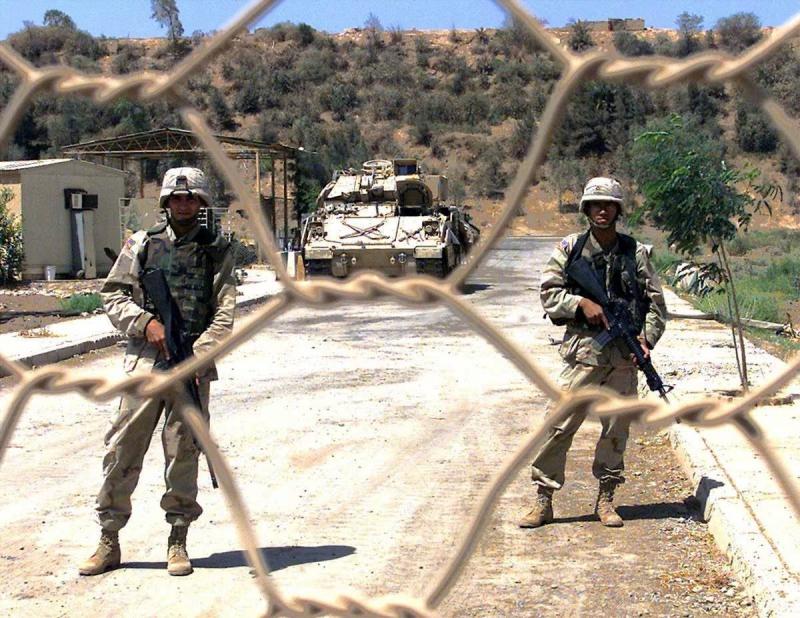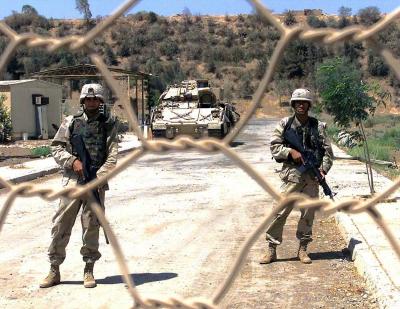Iraq is currently studying the issue of US military presence on its territory while negotiating with US officials for this purpose, insisting on ending this presence. In the meantime, it is expected that most US forces will be withdrawn or transferred to the Kurdistan region without harming US interests in Iraq. There is an inclination that Washington may have more influence in Baghdad, but without the presence of its troops.
A report by "Middle East Transparency" recalled the recent US strikes in Baghdad in response to the killing of three American soldiers in Jordan in late January, which it viewed as a significant departure from the long-standing restraint of the Biden administration towards Iran-affiliated forces in Iraq. This led to a substantial political backlash in the Iraqi capital, with unknown repercussions for the US military presence in the country.
According to the report, the US strikes provoked a strong reaction in Iraq from both "friends and foes," with the federal government in Baghdad viewing the US actions that "endanger civil peace" as forces it to "end the international coalition mission," which "threatens to embroil Iraq in a cycle of conflict."
The report indicated that demands to end the US military presence in Iraq are not new, having arisen since the Trump administration adopted a maximum pressure campaign against Iran in 2018, following the airport operation that resulted in the assassination of Qassem Soleimani, the commander of the Quds Force of Iran’s Revolutionary Guard, and Abu Mahdi al-Muhandis, the deputy head of the Popular Mobilization Forces, in early 2020. The safety of American soldiers and diplomats in Iraq has been jeopardized not only by militias but also due to the Iraqi government's laziness, which has shown neither the will nor the capability to protect American individuals.
The report found that the "concept of confronting American forces is not just from the militias in Iraq but even from the ruling government coalition that formed the government of Al-Sudani." However, it remains unclear whether Al-Sudani himself favors the withdrawal of coalition forces or if, as one advisor told Reuters, his statement was merely aimed at "appeasing the angry factions within the ruling Shiite coalition."
While Al-Sudani criticized the recent US retaliatory strikes in Iraq, he did not hold the same contempt as the Popular Mobilization Forces towards the US presence, even though his government hesitated to act against the perpetrators of attacks on military bases out of "fear of losing political support or Iranian retaliation," according to "Middle East Transparency."
While the United States has invested considerable blood and treasure in Iraq, and Baghdad remains of great importance to Washington, it could ultimately decide that the time has come for the US and its coalition to leave the country. Thus, it is evident that the substantial US military presence in this country has become indefensible, according to the report.
The report indicated that "after 20 years of invading Iraq, it is time for the Biden administration to start thinking about the best way to reduce the US military footprint in Iraq, as the US does not benefit from its presence there to roll back Iranian influence in Baghdad."
According to the report, since US forces in the Kurdistan region of Iraq act as a crucial logistics hub for Peshmerga forces in combating ISIS, Washington may be able to maintain a small presence in the Kurdish region of northern Iraq to support this anti-terrorism mission.
The report warned against a hasty and chaotic withdrawal akin to Afghanistan, which would damage the credibility of the United States; moreover, leaving under fire could also bolster a malignant regional perception of US military withdrawal from the area.
The report viewed that a complete withdrawal from Iraq would make the US embassy in Baghdad more vulnerable to attacks, which is a very real concern given the Iraqi government's tendency to neglect its commitment under the Geneva Conventions to defend diplomatic missions.
It pointed out that "the continued presence of US forces does little to prevent Iranian advances toward establishing dominance over Iraq, while at the same time rendering American forces there as hostages to Iranian-affiliated factions."
The "Middle East Transparency" report noted that "removing the majority of US forces from harm's way in Iraq could put Washington in a better position towards the Iranian-dominated Iraqi government, especially if troops remain in the Kurdistan region, where the US is still welcomed, enabling Washington to engage Iraq more freely regarding its relationship with Iran, sanctions violations, and endemic corruption, unburdened by concerns about power protection."
The report concluded by stating that "a stable and sovereign Iraq remains a priority for the United States; thus, Washington will have to rely on other tools of national power, especially economic influence, to safeguard its interests in Iraq. Therefore, gradually eliminating US troop presence or reducing their size does not mean the end of American military engagement with Iraq, nor does it imply American austerity in the region or acquiescence to Iranian regional dominance."




